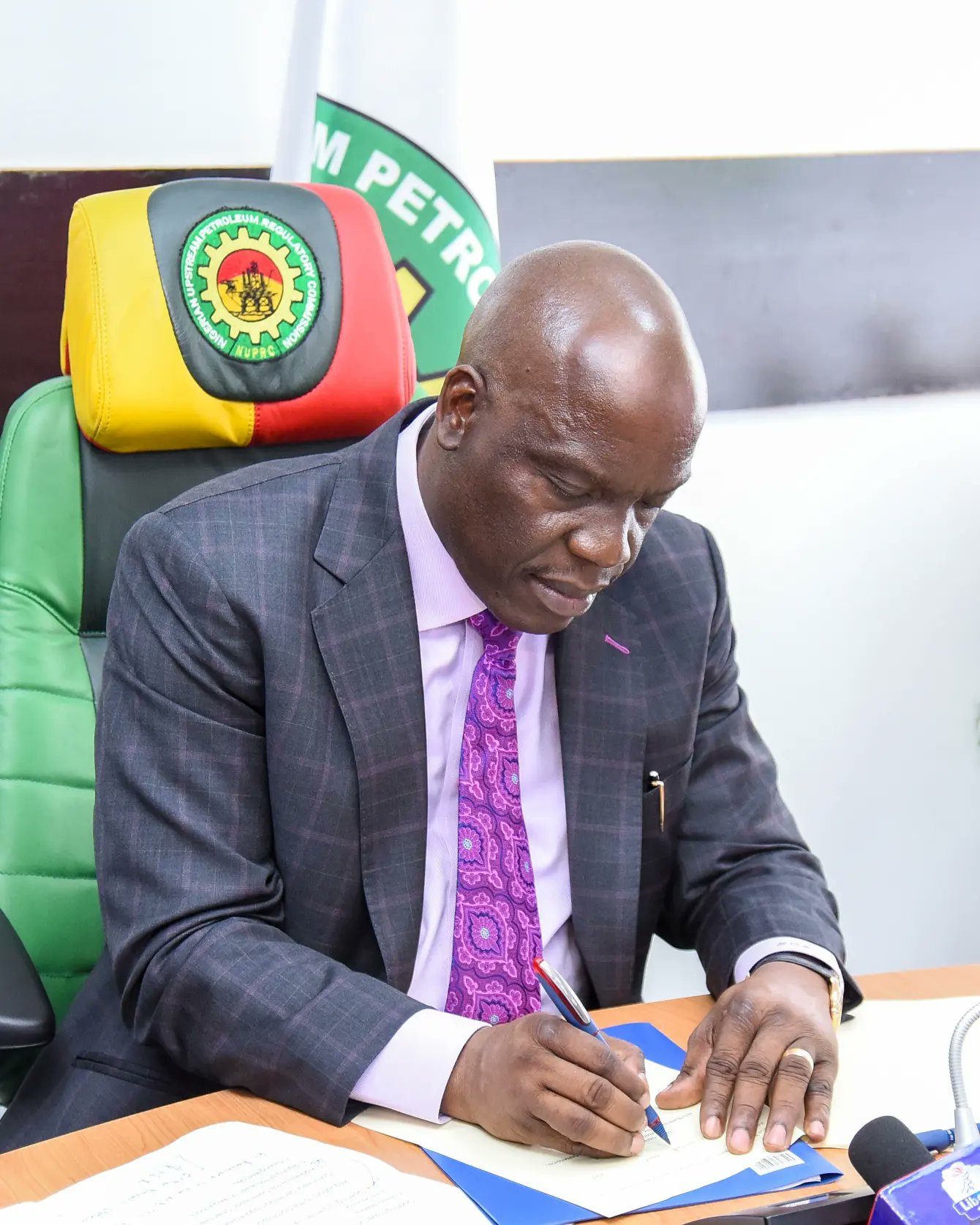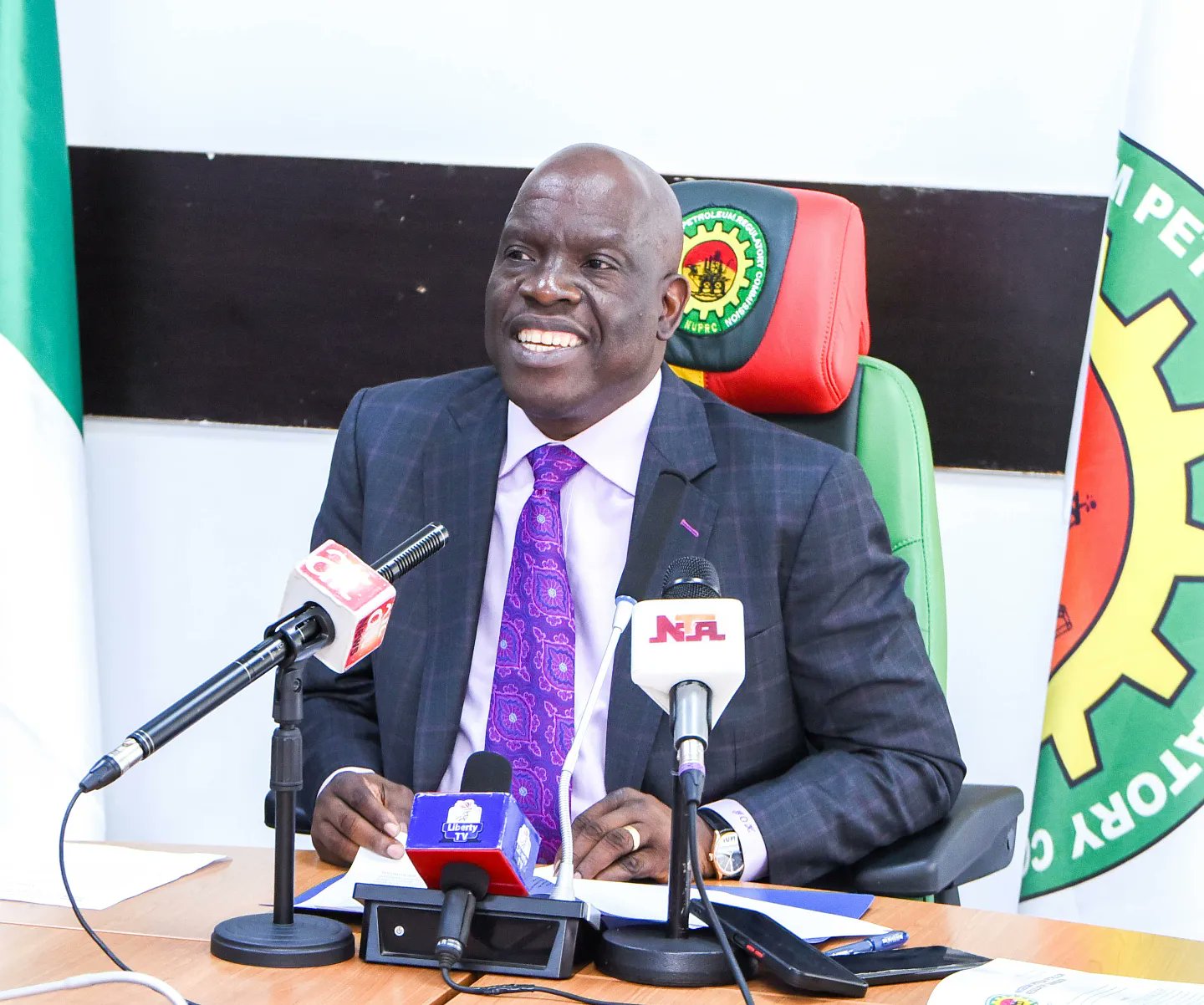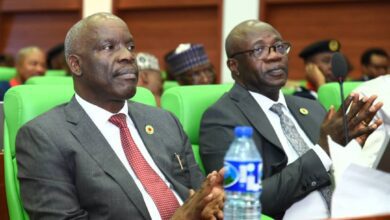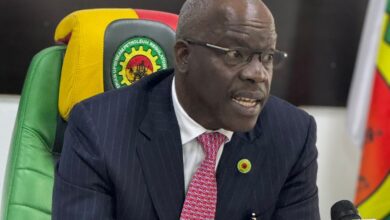
On Thursday, May 25, 2023, the Commission Chief Executive of the Nigerian Upstream Petroleum Regulatory Commission (NUPRC), Engr. Gbenga Komolafe signed into law seven priority Regulations to reposition the upstream petroleum sector.
The seven regulations signed and issued by the Commission brought to 12 the total number of regulations now gazetted, out of the 18 regulations initially identified as priority regulations.
According to NUPRC, the seven concluded Regulations were among other things targeted at addressing crude oil theft and losses in the sector.
Oil theft is an illegal appropriation of crude or refined oil products from the pipelines of multinational oil companies, and sold at both local and international markets.
In Nigeria, since the discovery of oil in 1956, theft and sabotage of oil installations and the resultant repairs of pipelines continue to drain the nation’s income.
The ‘hydra-headed monster’ has persistently unleashed economic disaster on the country, defying all known solutions proffered by successive governments.
Over the years, several measures like, military operations, community-based security, and monitoring had been deployed to put an end to the economic sabotage, but to no avail.
Economic/Financial Losses
Between January and December 2021, Nigeria lost about N1.6 trillion ($ 4 billion) to crude oil theft. That is 200,000 per day at an average price of $55 per barrel, according to the documents obtained from NNPC Ltd.
In 2022, between January and April alone, the volume of crude stolen rose to about 250,000 barrels per day putting the total loss at about N619.7 billion ($ 1.5 billion) at the rate of $100 per barrel.
The senate committee investigating oil theft and its consequent damage to the country’s economy had said Nigeria lost N1.3 trillion ($2 billion) to oil theft between January and August 2022.
The NUPRC had also said that about 1.2 million barrels of oil are shut-in consistently due to the menace in the country.

The former National Security Adviser (NSA), Major General Babagana Monguno, has estimated that the Federal Government may lose $ 23 billion in 2023 if crude oil theft continues.
The Nigeria Extractive Industry Transparency Initiative (NEITI) in its Reports disclosed that about 619.7 million barrels of crude oil were lost, either stolen or not accounted for, amounting to $46. 16 billion, which if converted to Naira in the official exchange rate would give N16.25 trillion that Nigeria lost by crude.
Government Measures To Curb Crude Oil Theft
NEITI further disclosed that since 1956-1957 when the oil was found in Nigeria, there was no Law regulating the industry except, regulations, directives, memos, and authorities.
As expected, all the security agencies were always mobilized to flush out the criminal element and restore normalcy. In fact, the Department of State Security (DSS) and the Navy made some arrests but did not yield much results.
The government took the fight to another level by deploying community-based security to monitor the pipelines while working on deploying technological tools for more effective surveillance and monitoring of the lines and facilities.
Despite all these measures, the oil theft continues unabated.
NUPRC’s Regulatory Intervention
The NUPRC boss said, the non-kinetic approach should be combined with the existing kinetic one to adequately address the menace.
He said, “On assumption of office, we commissioned a study. The outcome of that study revealed to us that about 40 percent of what was attributed as losses were metering losses.
“Therefore, why kinetic effort is being concentrated to curb crude oil theft, there should be a non-kinetic effort in curbing metering losses. 40 percent is actually substantial.
“The only way we think it will be addressed is by putting in place a potent regulatory tool. Some of these regulations we put in place are quite noble and revolutionary in intent and spirit”, he said.
He said the Nigeria Upstream Petroleum Measurement Regulations, 2023 would close the metering gap in upstream petroleum operations; encourage accelerated hydrocarbon measurement metering devices roll out in upstream petroleum operations;
encourage the development of independent and competitive meters used in the Upstream; attract private investment in the provision of metering services; provide for the regulation of the measurement of petroleum produced;
ensure transparent and accurate measurement of crude oil and gas as a basis for the calculation of oil and gas revenues accruable to the Government; and define requirements for the design, fabrication, manufacturing, testing, calibration, operation, and maintenance of upstream metering equipment.

This, according to him, was a clear departure from the trajectory in the Nigeria upstream sector since oil was discovered in Nigeria in 1956 and production commenced in 1958.
Engr. Komolafe said, the Production Curtailment and Domestic Crude Oil Supply Obligation Regulations, 2023, would provide the general rules for production curtailment and utilisation of the produced petroleum in relation to export and domestic crude oil supply obligation pursuant to sections 8(c) and 109 of the Act.
He said, the Frontier Basins Exploration Fund Administration Regulations, 2023, would also provide the general rules for the exercise of the Commission’s responsibilities with respect to frontier basins in Nigeria pursuant to section 9 of the Act and the administration of the Frontier Exploration Fund. The aim is to encourage and attract investment to the frontier basins in Nigeria.
The NUPRC boss said, the Nigeria Upstream Decommissioning and Abandonment Regulations 2023, seeks to ensure that decommissioning and abandonment activities are conducted in accordance with good international petroleum industry practice. The regulations also set the framework for the establishment and administration of a Decommissioning and Abandonment Fund.
He said, the Significant Crude Oil and Gas Discovery Regulations, 2023, would ensure optimum exploitation of petroleum covered by Petroleum Prospecting Licenses, granted under the Act, by the retention of areas of significant crude oil discovery and significant gas discovery by a licensee for a specified time in accordance with section 78 of the Act.
He explained that the Gas Flaring, Venting and Methane Emission (Prevention of Waste and Pollution) Regulations, 2023 seek to: reduce the environmental and social impact associated with gas flaring and venting of natural gas and fugitive methane emissions into the atmosphere;
preserve and protect the environment; prevent waste of natural resources; enhance energy transition in Nigeria; create social and economic benefits from gas flaring and venting; and set out the procedure for the Commission to exercise its rights to take gas at flare point in accordance with the Act and all other applicable laws.
Finally, he said, the Nigeria Upstream Petroleum Unitization Regulations, 2023 establishes rules, principles, and procedures for the implementation of unitisation of oil and gas from a petroleum reservoir that extends beyond the boundaries of a licence or lease area into an area to which another licence or lease relates.
He noted that the regulations represent a significant milestone achievement for the Commission in its continued stride towards the attainment of the goals of the Petroleum Industry Act (PIA) and the reformation of the upstream petroleum sector.

They are expected to provide a regulatory environment that assures efficiency, predictability, clarity, and effectiveness to the industry in the discharge of the Commission’s mandate.






